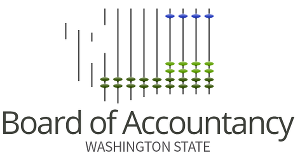I have a small investment firm. As you can imagine, investments is NOT the place to be right now but thankfully 70% of our business is muni-bonds and they have held up wonderfully through the entire mess. Still, it got me thinking. I sort of enjoy studying and learning and am wonder "what credential would help me the most long term?" 5 years ago I got the Enrolled Agent sort of on a whim and I've attained a few small business clients and a couple dozen individuals but would like to grow it more. What designation or certification would help me most in this area? I think I specifically am interest most in accounting and acquiring more corporate work.
I can't be a CPA because I can't do the public auditing for 3 years which is required in my state. Along with the EA I am licensed for securities with the Series 7, 63, 65 and 24. (yeah, I said I enjoy the process of learning). I had the CFP but found nobody cared about it in the 10 years I had it so I just let it lapse.
Would I be better off just being a Quickbooks Pro? Or is their a designation or credential I'm not aware of that clients (or employers) might find important between that and the CPA?
Thanks
I can't be a CPA because I can't do the public auditing for 3 years which is required in my state. Along with the EA I am licensed for securities with the Series 7, 63, 65 and 24. (yeah, I said I enjoy the process of learning). I had the CFP but found nobody cared about it in the 10 years I had it so I just let it lapse.
Would I be better off just being a Quickbooks Pro? Or is their a designation or credential I'm not aware of that clients (or employers) might find important between that and the CPA?
Thanks


Comment